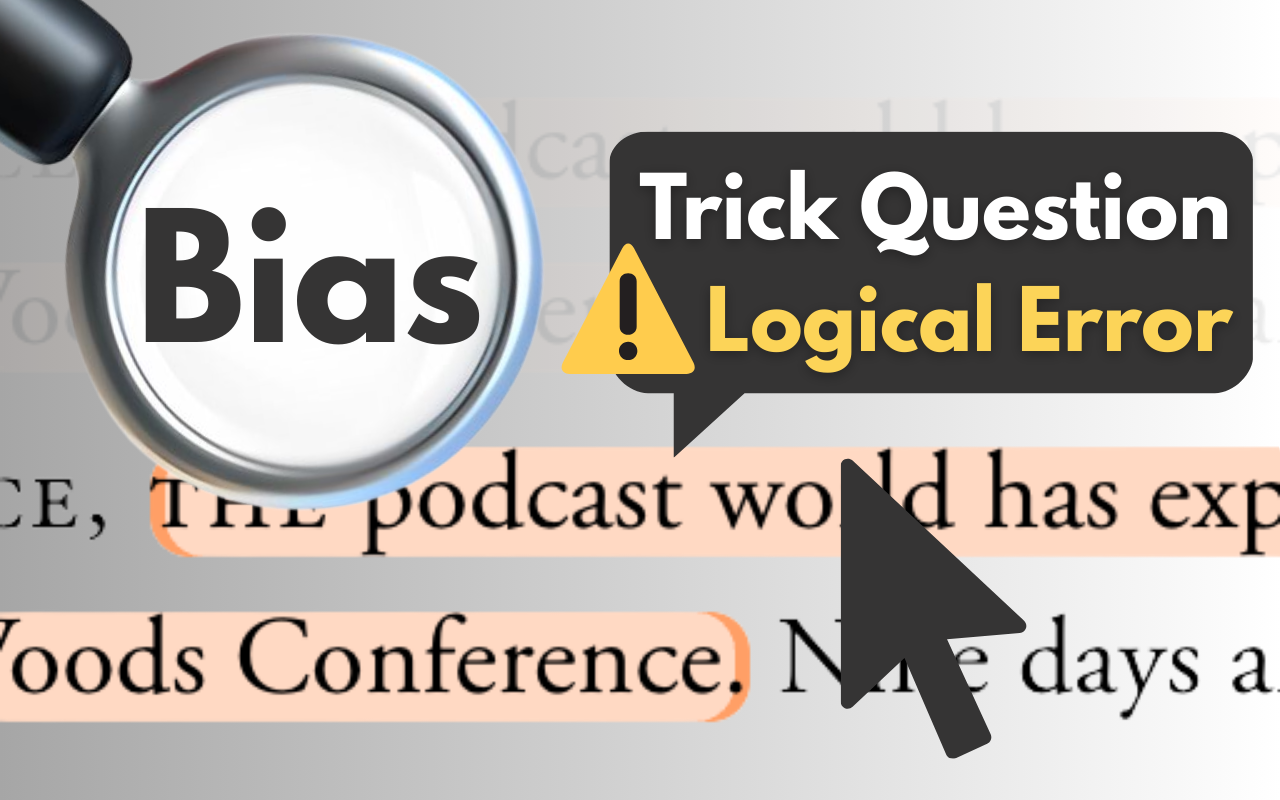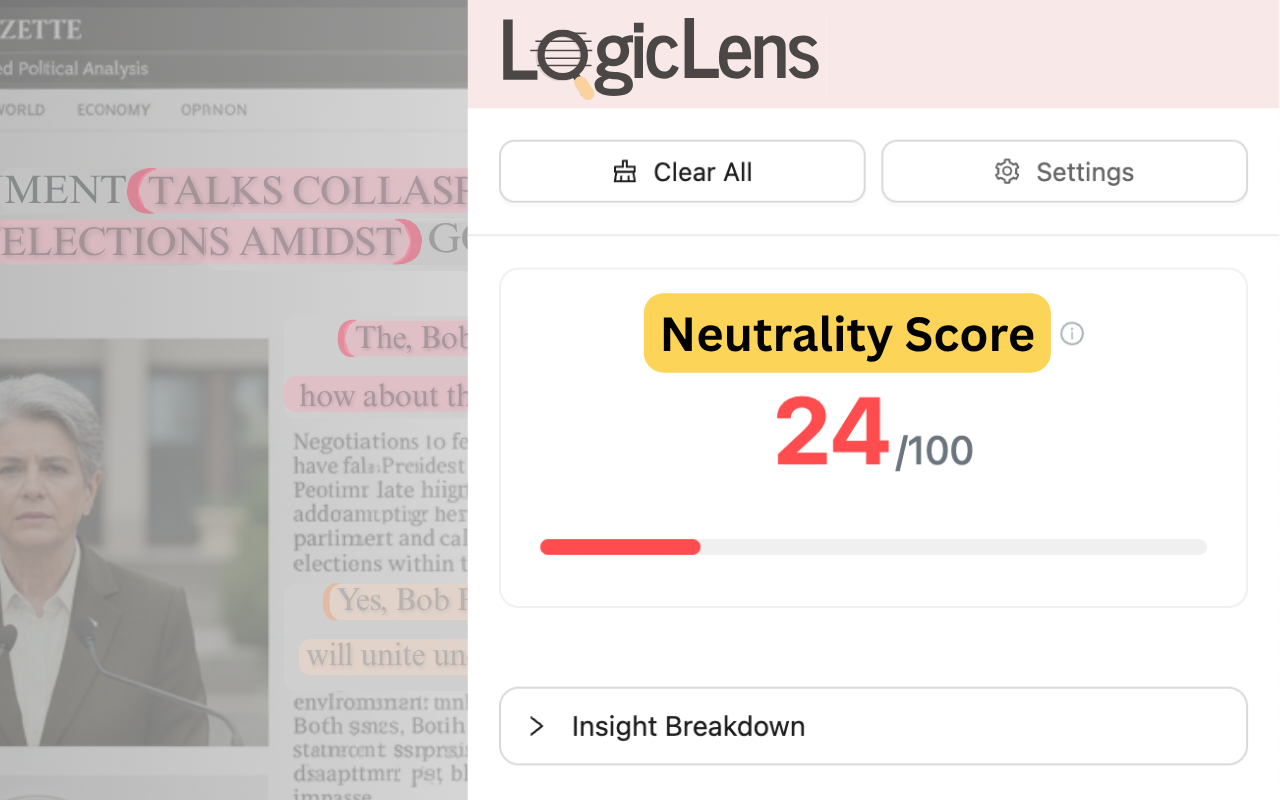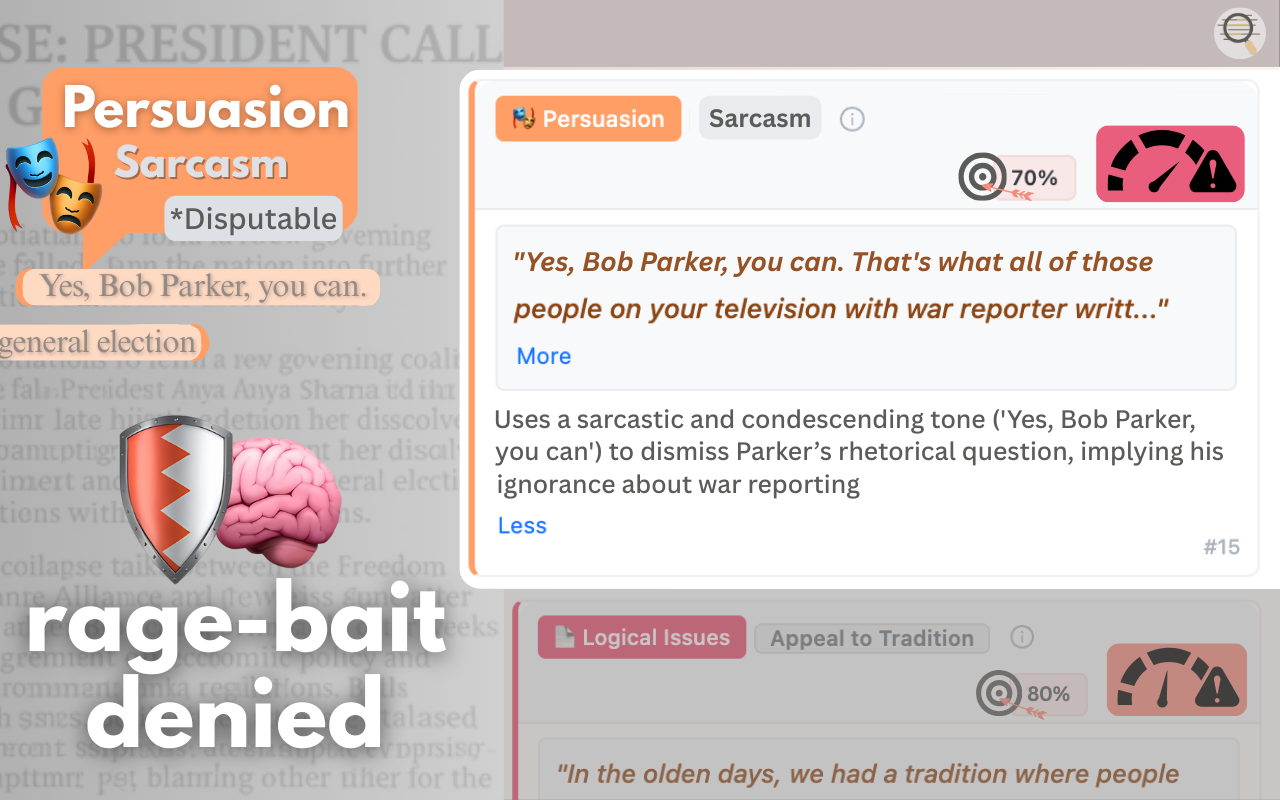A Reasoning Checker, Not a Fact Checker
Neutralize rage-bait & expose 80+ persuasion tricks as you browse with our free Chrome extension. It's research-backed; stubbornly non-partisan, & obsessed with how arguments are built, not which team wins. See through:
Information Gaps
Such as missing context or oversimplification that can mislead you.
Rhetoric
Persuasive techniques that effectively convince people by biasedly framing an issue.
Fallacies
Common & sneaky errors in reasoning that weaken an argument.
Sourcing
Does the source actually say that? We tell you.
Positive
Positive traits, such as using more neutral wording or providing different perspectives.
& Much More
80+ distinct categories, all which provide critical & valuable insights to users, no fluff.
"So-called" inserts doubt, without providing evidence. More neutral wording: "The platform removed posts it stated were election misinformation."
Why LogicLens?
In this era of info-overload and BS, who wouldn't want a personal Socrates in your browser? Ok, but still unconvinced? Here's a sneak peak at just *some* of what LogicLens does:

Unmatched Analysis
Our system was custom designed to outperform general models like ChatGPT & even trained experts.
Spot BS Anywhere
You control which sites LogicLens works on.


LogicLens Score
Get a high-level assessment, or go deeper with breakdowns. We're building a clear scoring methodology so you can see exactly why and how scoring works.
Your Personal Socrates
See the issue; see the severity; see the likely intended effect (is it playing your emotions? which ones? why?), & more.
Customize (almost) everything to your liking.


